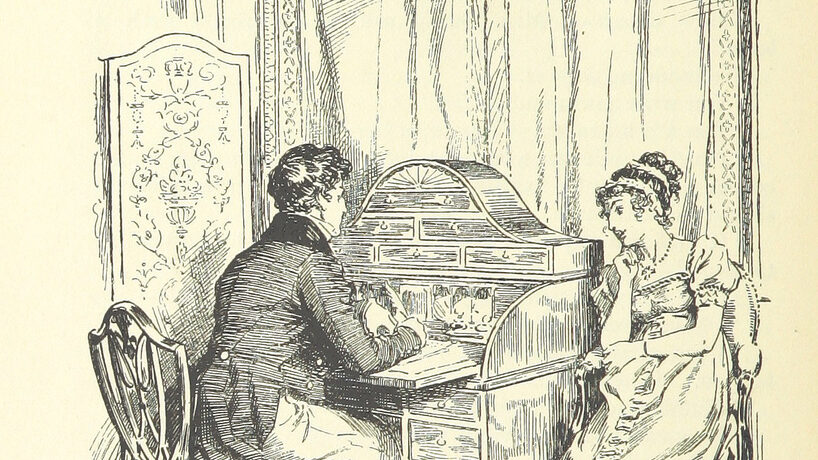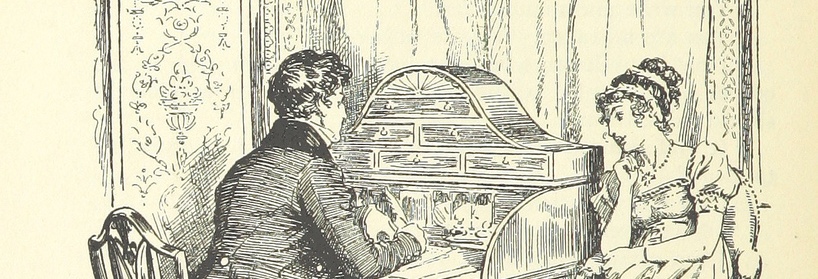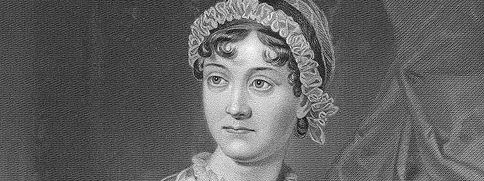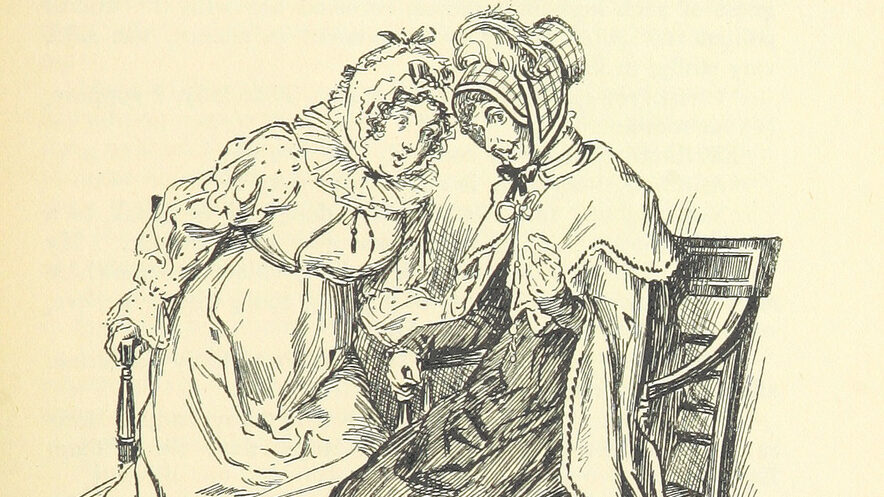Tip 1: Master the Indirect Boast
Our first tip comes from Mr. Charles Bingley of P&P fame and has to do with turning a seemingly bad quality (your worst quality or your biggest weakness) into an opportunity to do a little bit of self-promotion (i.e. cause the potential employer to see that you really are this awesome person who has no flaws and totally deserves the job!!). It’s the old, let’s disarm them with an “indirect boast” trick.
In Pride and Prejudice, Mr. Bingley mentions a seemingly bad trait: the tendency to produce incoherent, sloppily composed letters and cleverly spins it in such a way that we come to understand what a quick-witted fellow he really is.
Brilliant.

The Setup
I know you’re familiar with the scene. It’s the one where Mr. Bingley, Mr. Darcy, Mr. and Mrs. Hurst, Miss Bingley and Elizabeth are all passing a quiet (i.e. boring) evening in the drawing room.
Mr. Darcy is writing a letter to his sister and Miss Caroline Bingley is trying in vain to flatter and flirt with the surly Mr. Darcy. She refuses to recognize and accept the fact that he is just not into her. At all.
Awkward.
She persists in engaging him in conversation, which is painful to read/watch/listen to, but it does provide her brother a chance to demonstrate how to handle that pesky “What’s your worst quality/biggest weakness?” interview question because, getting nowhere with Darcy, Caroline turns to criticizing her brother’s style of letter-writing. (Maybe she was a tad annoyed that he was not doing his part to help her land a landed gentry). In his defense, Mr. Bingley says the following (then Elizabeth chimes in and there are also a couple of snarky comments from Darcy in the dialog below):
Bingley’s Spin
“My ideas flow so rapidly that I have not time to express them — by which means my letters sometimes convey no ideas at all to my correspondents.”
“Your humility, Mr. Bingley,” said Elizabeth, “must disarm reproof.’”
“Nothing is more deceitful,” said Darcy, “than the appearance of humility. It is often only carelessness of opinion, and sometimes an indirect boast.”’
“And which of the two do you call my little recent piece of modesty?’”
“The indirect boast; — for you are really proud of your defects in writing, because you consider them as proceeding from a rapidity of thought and carelessness of execution, which if not estimable, you think at least highly interesting. The power of doing any thing with quickness is always much prized by the possessor, and often without any attention to the imperfection of the performance…”
Modern-Day Application
So there you have it. Now imagine Mr. Bingley is being interviewed for a job. (What? A gentleman having to earn his fortune? Never!) But for my purposes, let’s suppose…
Potential employer: So, Charles, what is your worst quality?
Charles: My worst quality, I suppose, would be that when I’m working on a project, my thoughts come out so quickly, sometimes they only make sense to me. I have to really slow down and edit myself. (Charles laughs a self-depreciating laugh)
Potential employer: (to himself) Wow, this guy must be really smart. Only smart people think faster than they can write. Let’s move this guy to the top of the short list.
Putting Your Spin on It
Of course, there are probably better worst/best qualities to pick from: being a perfectionist, being single-minded about a project, even saying something like “I tend to be impatient, but I’m working on it…” Mainly, you want to list a quality that actually makes you a desirable employee or use the question as an opportunity to show how you have addressed a “problem” or are currently addressing it.
The basic idea is to channel your inner Mr. Bingley. Remember, a job interview is not a therapy session. It is not a time for self-disclosure. (Save that for conversations with Mom or episodes of speed dating). A job interview is your chance to sell yourself to a potential employer, so view every question as an opportunity to do just that.
Next, we will explore what we can learn about job interviews from resident bad-boy, Wickham, who seemed to have a particular aversion to employment.



